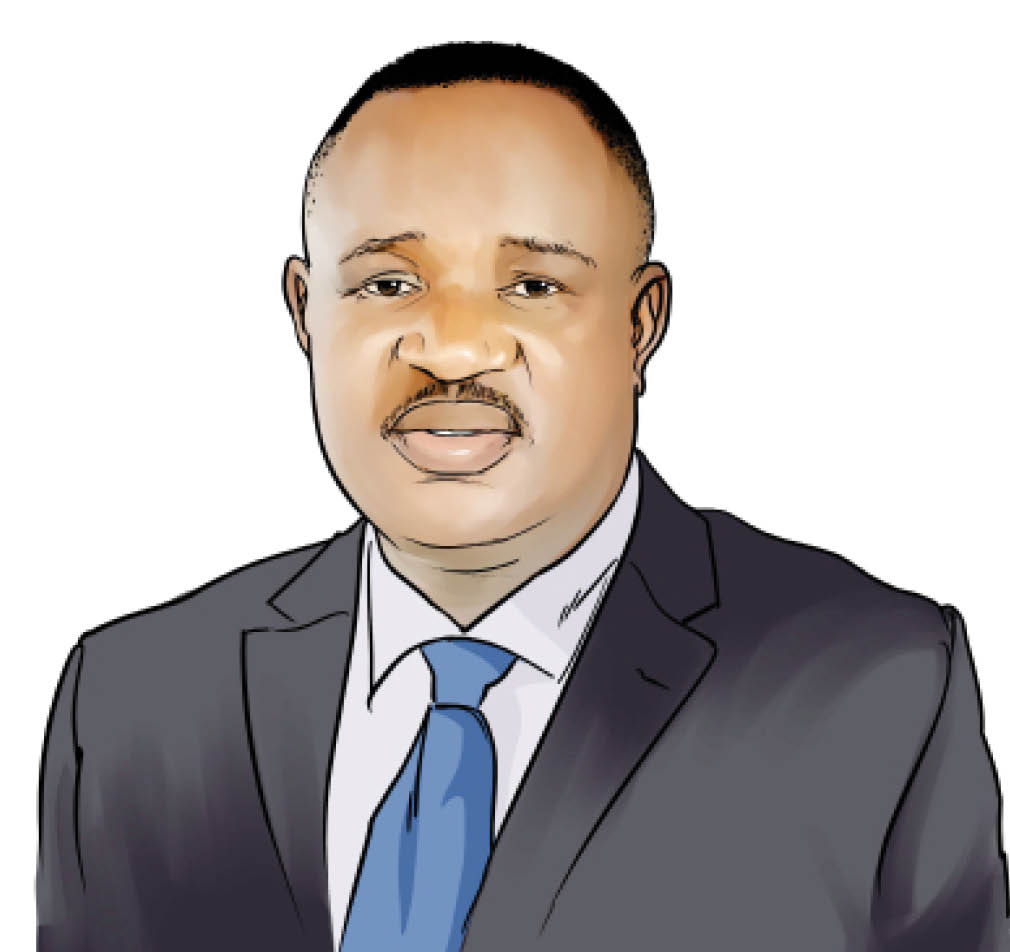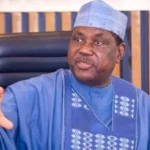Mr Felix Johnson Osakwe, the presidential candidate of the National Rescue Movement (NRM), is once again racing to succeed President Muhammadu Buhari after a poor outing in the 2019 general elections in which he emerged 17th.
Though not a neophyte, he is barely known in Nigeria’s political circle. Osakwe, pundits say, belongs to the class of those vying for elective positions to enrich their public profile having known that their victory can be likened to a camel passing through the eye of the needle.
Osakwe hails from Ukwuani LGA of Delta State. He was born in Ilesha, Osun State, where he spent most of his youth and attended the Apostolic Primary School, Ijebu-Ijesha and obtained a diploma in theology from Calvary Bible College, Osun State.
In the late 1990s, he moved to the United States (US) where he studied legal and criminal justice at Ashworth University, Atlanta, Georgia. He further obtained bachelor’s degree in theology and a masters’ in theology from Freedom University and Theological Seminary, USA. He was conferred with honourary PhDs by Freedom University and Theological Seminary, USA; and Highstone International University, USA.
Osakwe joined the Redeemed Christian Church of God (RCCG) as a teenager in the 1980s and rose to become one of the church’s first generation of evangelists. He later established his ministry, Christ Evangelical and Prayer Ministry (CEPM).
He is known among his circle as a teacher, life coach, character moulder/influencer and human development expert.
Since 2017, he has served as the Director for Executive Affairs at the Universal Peace Federation, Nigeria, a network of peace ambassadors with consultative status at the United Nations Economic and Social Council (UNESCO).
In that capacity, he engages with stakeholders and duty-bearers in social, economic and political spaces to broker peace and manage crisis.
Politics
Osakwe’s first shot at the presidency was in the 2019 elections. A year before then he sought the presidential ticket of the Social Democratic Party (SDP) against the likes of former Minister of Information, Professor Jerry Gana; a former Governor of Cross River State, Donald Duke; John Dara and Prof Iyorwuese Hagher.
Duke won the SDP ticket and Osakwe dumped the party and pitched tent with the Democratic Peoples Party (DPP) and was adopted as its presidential candidate. He contested the 2019 presidential election and came 17th.
Why I’m eyeing Buhari’s seat
Osakwe said he joined the 2023 race to Aso Villa to birth a “great and prosperous nation where everyone has access to new, exciting and unhindered opportunities.
“Having sojourned in the largest and most civilised democracy in the world for over three decades, the time has come for me and my team to take the mantle of leadership of this country in 2023. Nigerians need a leadership that will take the nation out of the woods and to the promised land.”
He premised his presidential bid on six goals: affordable healthcare, human capital development, resurgent agro-industry, social cohesion and stability, vibrant technovative sector and safer communities.
In line with his party’s name, Osakwe said he was poised to rescue the nation from the inherent imperfections in its body polity; declaring that Nigerians should gear up for a new country where the opinions of all would count, with all segments of the Nigerian society as stakeholders.
He said, “Our political movement focuses on aggressive and accelerated growth and even development of human and material resources in all parts of Nigeria.
“We will ensure that our national integrity and solidarity is restored to give every Nigerian a pride of place in the global community. My team craves a prosperous and powerful most populous black nation in the world that will robustly engage world powers and discuss African development and not debt relief.
“We will grow our nation and exit the citizens from poverty and mass illiteracy and despondency while we steer the ship of our nation state in the direction of self-sufficiency in food production without necessarily promoting hunger and starvation.
“Our social contract with Nigerians is that we will make this Nation a land of New Exciting and Unhindered Opportunities and run an all-inclusive administration where we prioritise input from the socio-political environment and not rule by proxies. Our administration shall be for all Nigerians while we pride ourselves above blind acquisition of stolen wealth.
“Considering the social crisis occasioned by the collapse of social order and the menace of insecurity, our immediate priority will be to make this country safe again.”
Legal battle
Osakwe’s candidature and chances at the general elections are threatened by the internal wrangling and the attendant legal battle rocking the party.
NRM has been enmeshed in a crisis following the replacement of Mazi Okwudili Nwaanyajike with Osakwe as its presidential candidate by its National Executive Committee (NEC). The NEC suspended Nwaanyajike and 14 other members.
NRM National Chairman, Ambassador Isaac Chigozie Udeh, said the party decided in good faith to brighten its chances at the poll.
But Nwaanyajike, in an interview with Daily Trust, insisted that he was not suspended, assuring that his “stolen” presidential ticket would be recovered.
He said, “The matter is now in the Supreme Court and we are confident that the judiciary, being the last hope of the citizens, will do the right thing by toeing the part of justice. Even if it’s a day to the presidential election, I will recover the ticket.”
Chances
Observers place Osakwe in the class of presidential contenders whose parties are contributing to having a long ballot during the election.
They said Osakwe and his likes might have good qualities and the necessary expertise to turn things around, but that the platforms on which they were running for Nigeria’s presidency were unpopular, thereby blighting their chances.
The Team Lead of Good Governance Team Nigeria, Tunde Salman, said, “The fact that we have more people coming out to indicate interest to govern Nigeria shows that the country’s political space is expanding; which is good for our democracy.
“However, the Nigerian political space is still dominated by the two big parties, APC and PDP, plus the Labour Party, which we can now refer to as a third force due to the popularity Peter Obi’s candidacy enjoys from some sections of the Nigerian society.
“The domineering features of the big parties, no doubt, will blight the chances of the candidates of smaller parties at the polls. The structure of a party and its popularity matters in Nigeria’s electoral space.
“Mr Osakwe and other small parties’ candidates may have good qualities and may have excellent records in their chosen fields, but having a crowded electoral contest creates a nightmare for INEC, especially the issue of printing long ballots.”
Salman further said that the affected candidates and their parties were also short of resources to run campaigns in at least half of the 36 states of the federation to engage voters on their policies and programmes.
He added that, “Though it is within their constitutional right to contest any elective position, I will advise that they should start from local or state levels where development is needed most and their impact will be felt.”

 Join Daily Trust WhatsApp Community For Quick Access To News and Happenings Around You.
Join Daily Trust WhatsApp Community For Quick Access To News and Happenings Around You.


